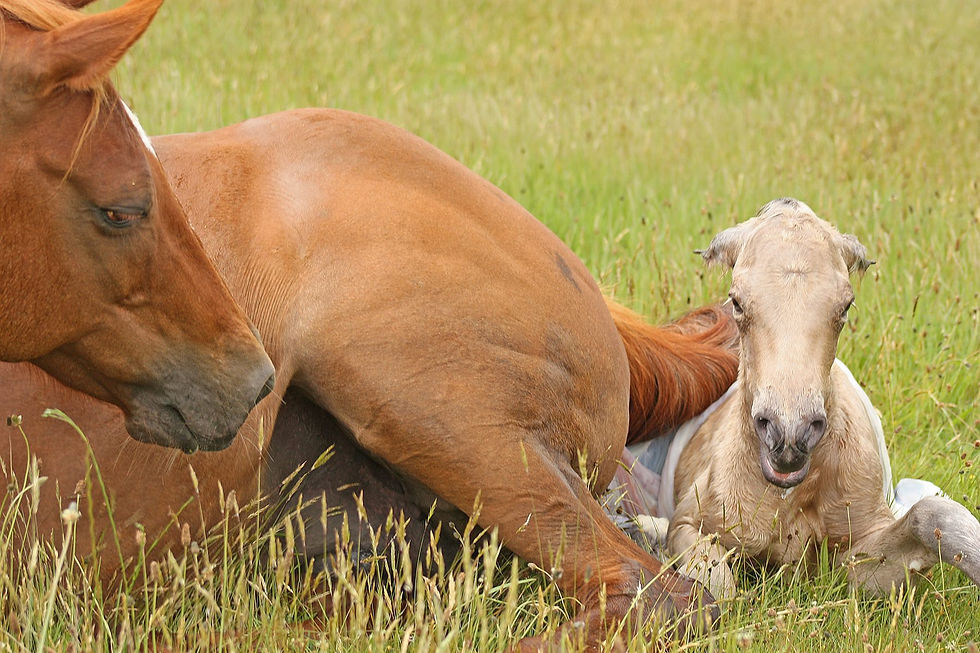Investing in the Future of your Foal
- Jenny Paterson

- Jul 30, 2025
- 2 min read
Your broodmare will be either well into, or progressing through the last trimester of her pregnancy.
Over this time the developing foal will double in size...

Understandably the mare's nutrient requirements increase substantially. Now is the time to put effort and resources into the future of your foal and maintaining the health of your mare.
Inadequate nutrition will be to the detriment of the mare as she 'puts everything' into her foal, while over-feeding can lead to Developmental Orthopedic Diseases (DOD's) which are so common in the thoroughbred industry.


Your mare does need grass but keep the hay up to her too to ensure adequate fibre intake.
In her daily feed she also needs:
SALT: Ever since 'Mare Reproductive Loss Syndrome' in Kentucky back in 2001, Dr Thomas Scwerzek DVM has been advocating feeding salt to broodmares. He observed spectacular reductions in the incidence of abortions, still births, birthing problems and DOD's in Kentucky’s large broodmare bands.
Premium/Supreme MVA - A HIGH SPEC Mineral/Vitamin/Amino Acid supplement to provide ALL essential nutrients including organic copper and zinc in addition to selenium and Vit E.
XtraCal - CHELATED CALCIUM together with vital co-factors: magnesium, boron, phosphorous and Vitamin D will ensure an appropriate supply of calcium so the mare doesn’t release it from her own bones for her foal. Particularly if your mare is grazing kikuyu or other oxalate grasses.
Add ShapeUp/ShipShape for the amino acids LYSINE, METHIONINE, THREONINE for tissue development of the foal. The protein content of the grass will not be ideal over spring.
All the above can be added to high fibre, low carb, PLAIN feeds.

Avoid kelp as it is high in iodine and low in other essential nutrients.
Avoid applying commercial fertilisers at all costs.
Horses in their natural habitats do not consume legumes like clovers or lucerne. They contain phyto-estrogens that can interfere with hormone balances and disrupt normal cycling, leading to difficulty conceiving.
Keep an eye on your mare’s body condition - the last thing you want is an obese or metabolic mare that is prone to laminitis.
Not to mention if your mare is affected by changes in spring grass and becomes hyper-sensitive; her udder will be extremely sensitive to touch and she will be reluctant to let the foal drink or she may even be aggressive towards the foal.
Or the foal from a mare affected by spring grass can be flighty, difficult to handle and more prone to accidents.
GRAZE EZY and all CHH products are safe for pregnant mares

Photographs supplied by Cathy Dee, of 2 of her horses Zephyr and Merlot - Merlot is still going strong at 29 years as of the writing of this post July 2025, ditto Zephyr who is now 11 years.




Comments